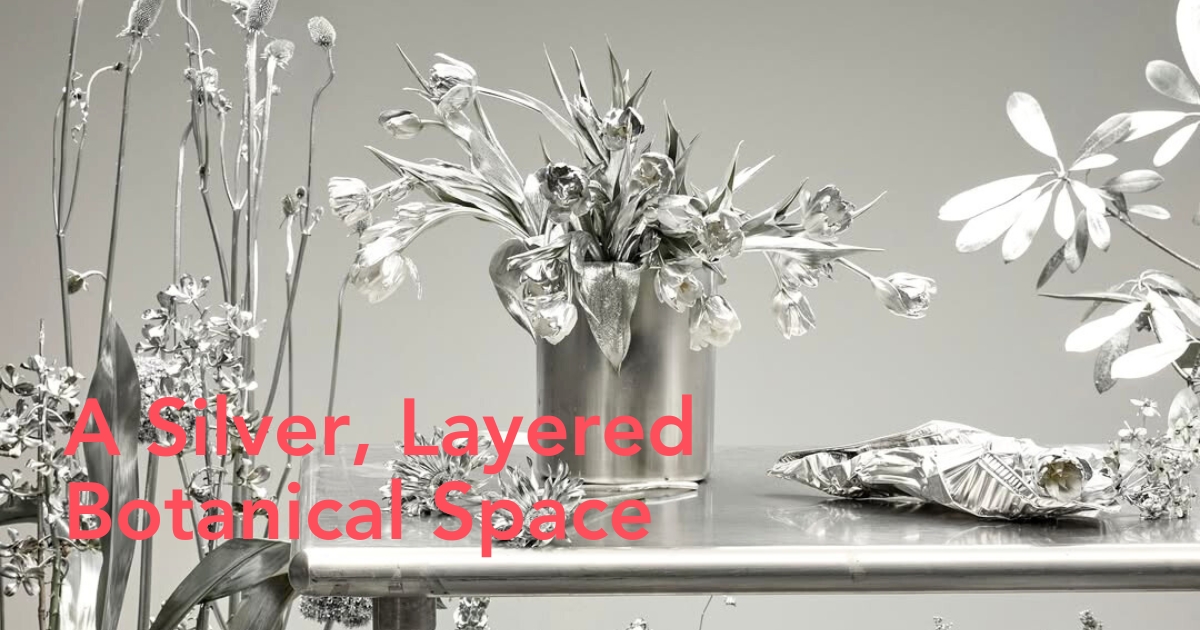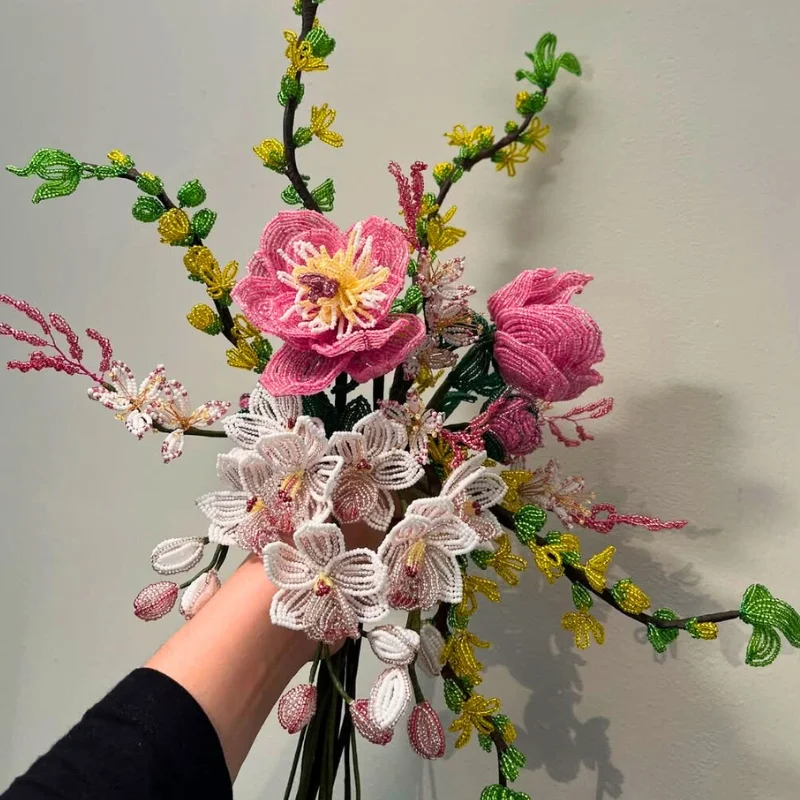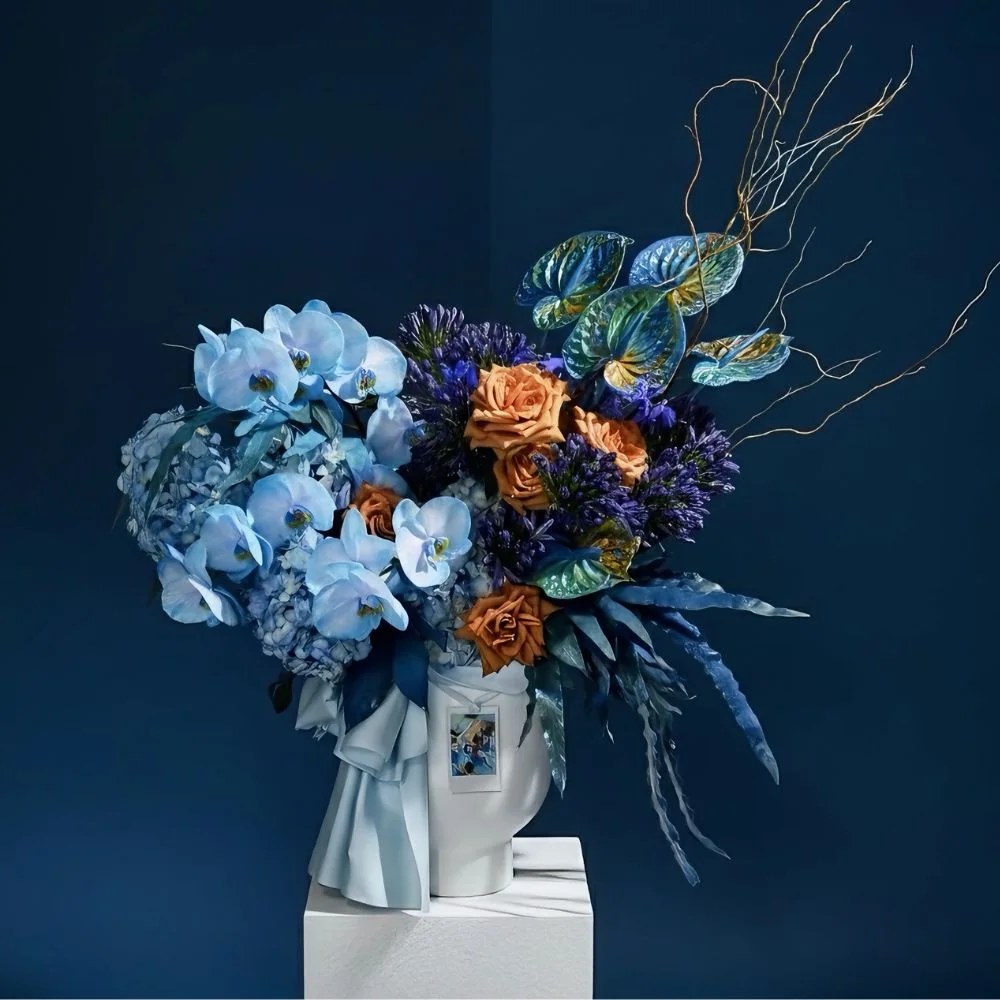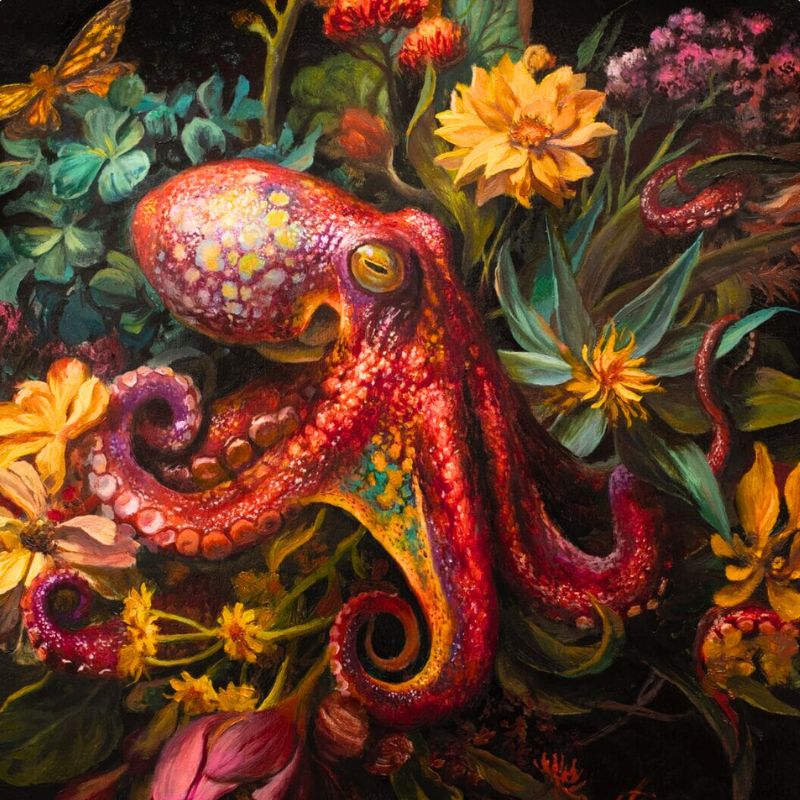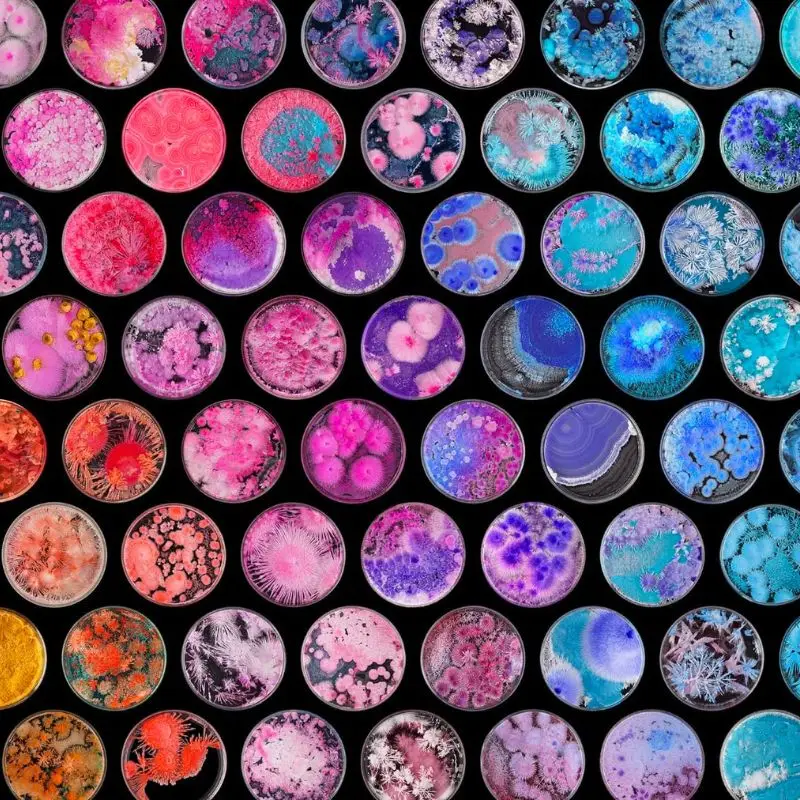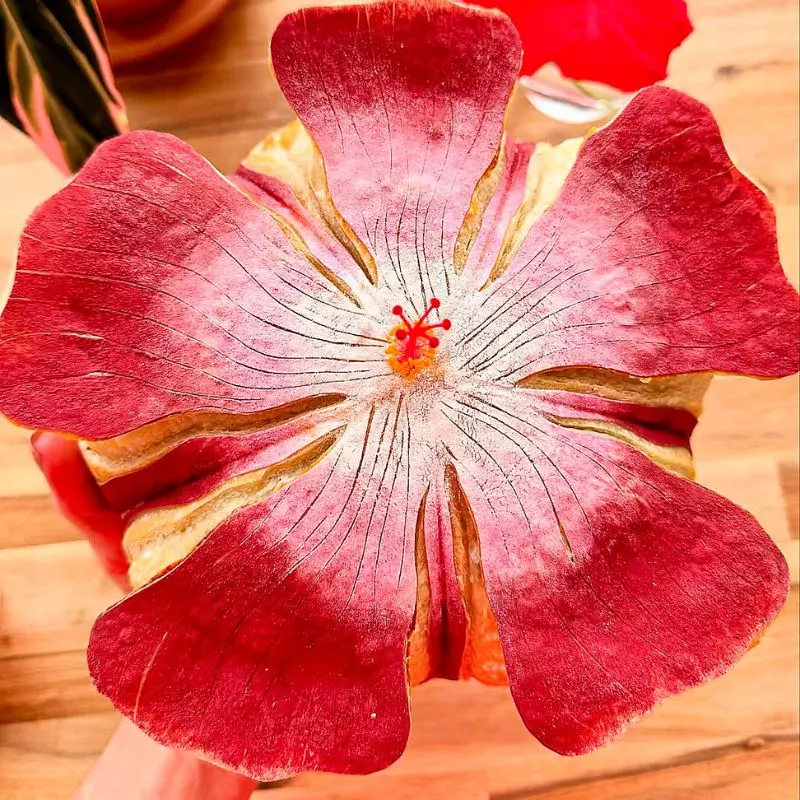'Flower Room' was a one-day exhibition created by Flover, a floral design business, and Crosby Studios, which took place inside a private townhouse in Williamsburg, Brooklyn. Designed by Harry Nuriev, the founder of Crosby, the project invited guests into a transient setting where plant bits and industrial elements combined to form a sculptured silver capsule.
Flover and Crosby Studios Bring Life to Discarded Botanicals
A mirrored structure composed completely of aluminum barbecue trays, a common element in Nuriev's work, stood in the middle of the installation. Previously displayed in his Paris exhibition, the silver-toned capsule contained floral arrangement waste, such as lost petals, bouquet remnants, and loose flowers in buckets. These leftovers, which are frequently disregarded in conventional flower arrangements, were arranged prominently around a center table that appears to be found in the middle of its use, giving the room a sense of being in the middle of something.
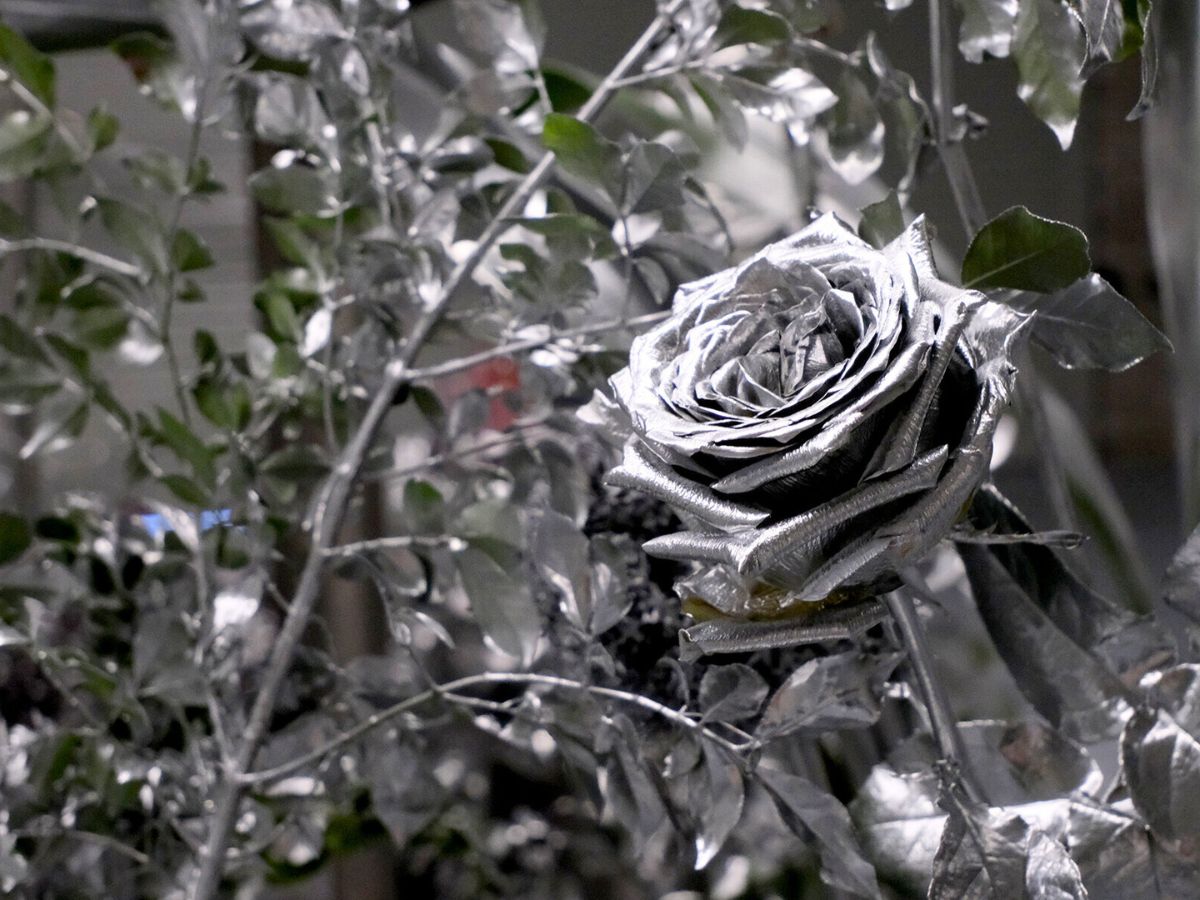
Honoring the Impermanence of Flowers
By layering sculptural floral compositions throughout the room, Flover added a special style to its partnership with Crosby Studios. By fusing its organic features with the industrial shell of the capsule, the design highlighted the conflict between beauty and deterioration. The floral design firm emphasized the ephemera of the nature of floristry as a component of the space's architectural language rather than using flowers as final goods.
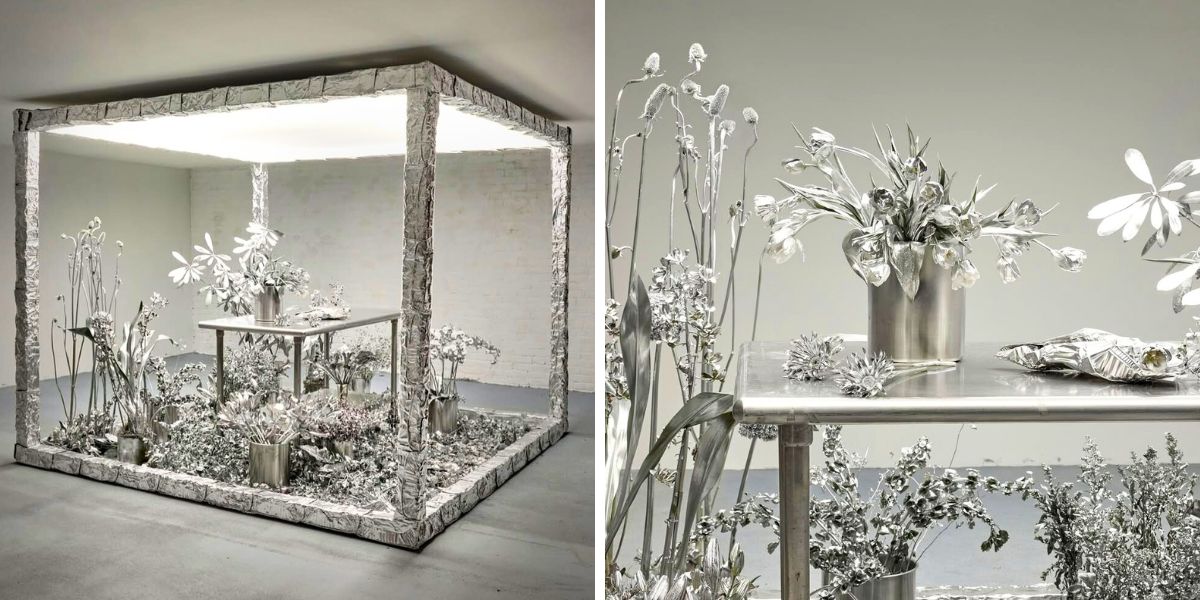
Flower Room was placed in a townhouse that the Crosby Studios team had recently created for Compass, which enhanced the installation's resonance. With the silver capsule disrupting the home as a transient creative laboratory, this site-specific setting expanded the conversation between architecture and interiors.
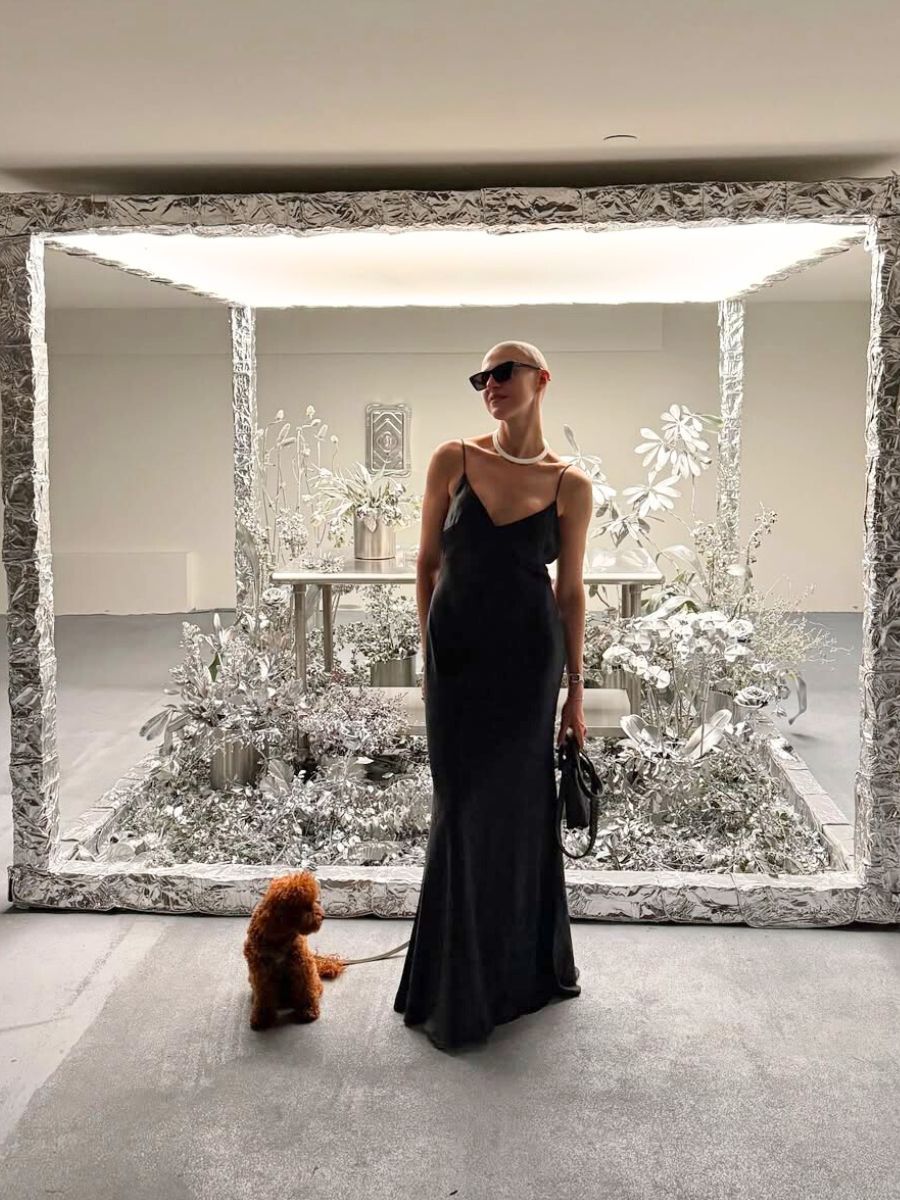
The work of art emphasized how repetition and residue play a part in the producing process. The team focused on the material remnants of construction and floristry as deserving of architectural attention by revealing the pieces that are usually left behind. Silvery surfaces and organic forms interact in the installation, which serves as an embodied mirror of process.
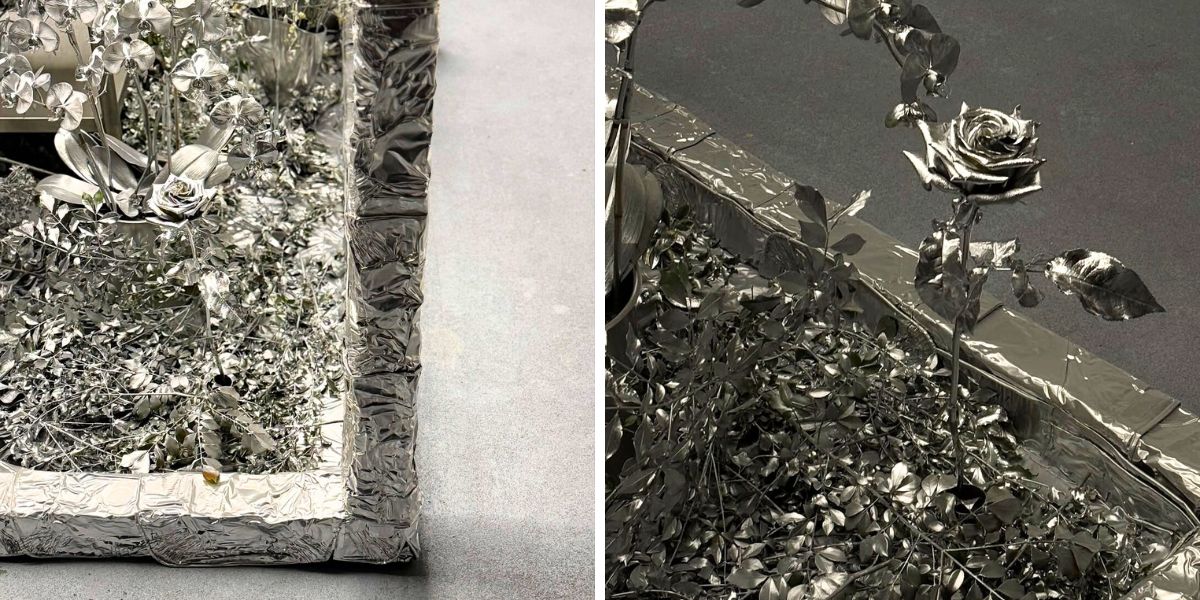
Despite only being open for one night, Flower Room attracted more than 230 people, including local creatives, designers, and artists. The layered environment of the room blurs the distinction between sculpture, stage design, and temporary display while showcasing the experimental attitude of both Crosby and Flover.
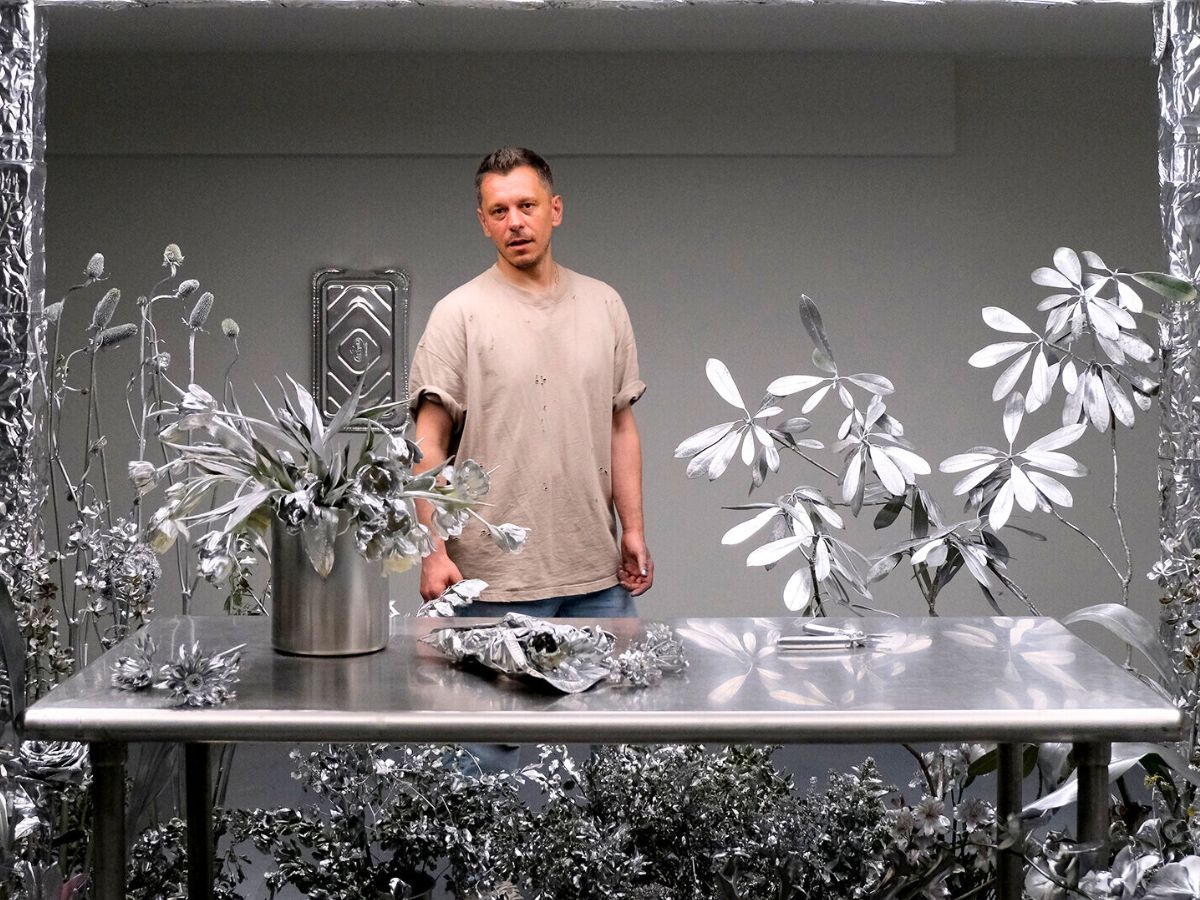
Reimagining the Lifecycle of Design
The ability of Flower Room to reinterpret garbage as something to be lingered over rather than thrown away was what really set it apart. Flover invited attendees to stop and think about what's typically swept away by bringing the residue of floral labor to the forefront rather than concealing it. The installation evolved into a discussion about cycles—creation, decay, and reinterpretation—in which industrial elements accentuated nature rather than overpowering it.
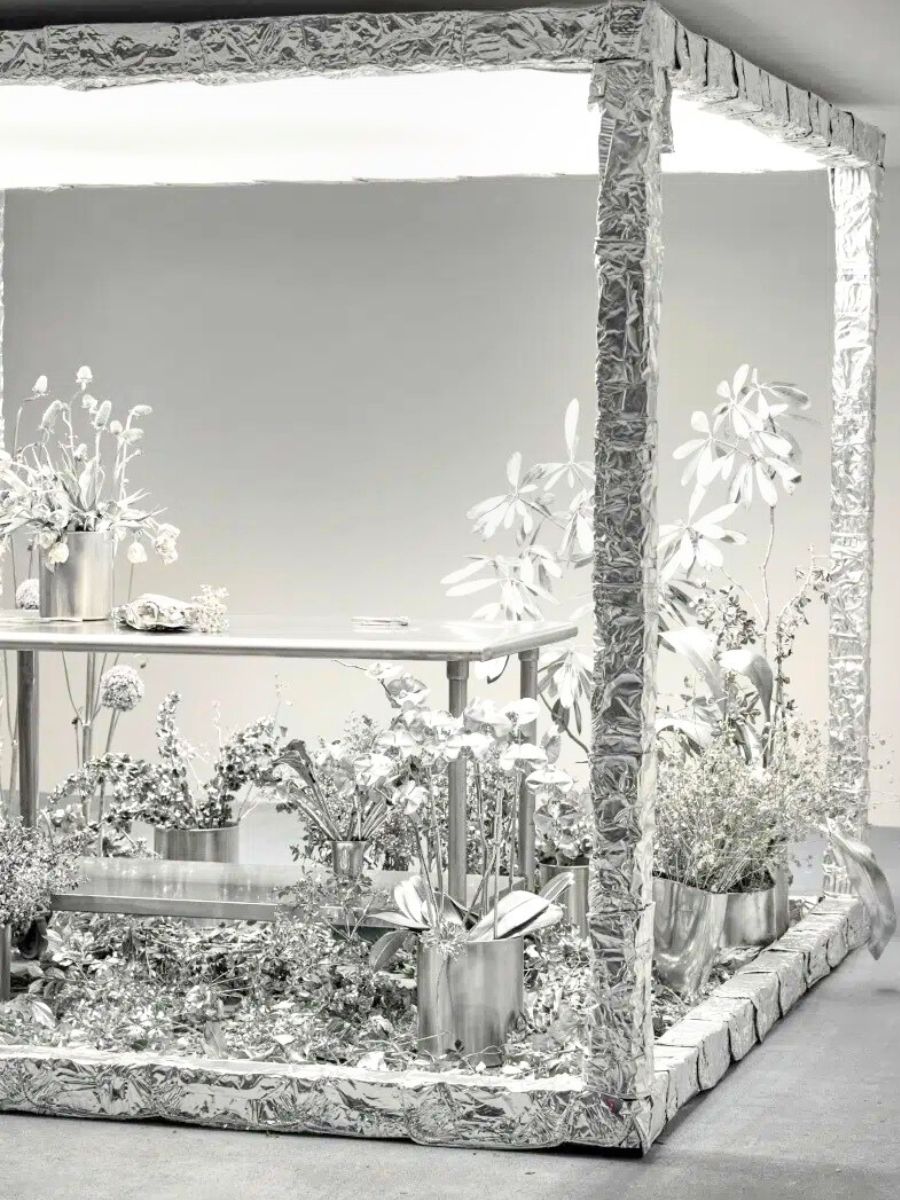
Photos by @paulineshapirophoto.

